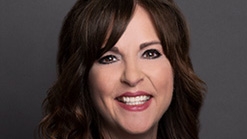The Origins
The collaborative was founded in 2013 in San Diego, California. Its mission is to empower mortgage lenders with better financial execution, reduced costs, enhanced expertise and improved compliance, as well as helping its members access the changing consumer base in the U.S.
The company is managed by founding member John Robbins, CMB; David Kittle, CMB; Gary Acosta, CEO of the National Association of Hispanic Real Estate Professionals; and Jim Park, former chairman of the Asian Real Estate Association of America. Robbins and Kittle are also former chairmen of the Mortgage Bankers Association of America.
As for the Emerging Technologies Fund, so far the collaborative has awarded funding to Capacity, Clever, Home Lending Pal and Maxwell. Swerbinsky said a fifth fintech company will receive funding soon, but declined to name it.
Swerbinsky said the work that the funded companies are doing aren’t necessarily new technologies, but better approaches to ones that are already in place. “They are different types of technology investments, but the general theme is automation, with balance,” he said.
Asked if the goal was speed or service to the customer, Swerbinsky said, “It’s about both. It’s also about accuracy. The vast majority of the information needed is digital data.”
He also noted that when the fund first launched they were seeking out fintech companies to gauge their interest in participating in the fund. But that has changed. The companies are now coming to the collaborative because they realize that the limited partners can advise them on the types of emerging technology that they need or want.
David Karandish, CEO of Capacity, an artificial intelligence platform that automates support for borrowers, loan officers and support staff, said that working with the collaborative and the tech fund has been a “fantastic experience.”
“First it gives us access to industry leaders who are helping to shape our product roadmap. The evolution of our platform over the last 12 months has had a lot to do with the conversations we’ve had across the [The Mortgage Collaborative] ecosystem,” Karandish said. “Second, it has validated our value proposition to the industry.”
Karandish also agreed with Swerbinsky’s view that his company has been able to use the relationship with the collaborative to learn from its clients.
“We recently returned from the TMC member conference where we had the opportunity to interact directly with members about the business problems they need to solve in 2022 and beyond,” he said. “That direct feedback is incredibly valuable as we seek out ways to better serve our clients.”
John Paasonen, co-founder and CEO of Maxwell, a fintech platform that aims to modernize the mortgage process and is dedicated to helping lenders closing sales “faster and happier,” said his company has been working with the collaborative’s members for about 4 years and that there’s a common theme to what they are looking for.
“They’re excited about speed,” Paasonen said, adding that it's helpful to have a large number of experienced lenders at the company’s fingertips.
“It gives my team access to their great feedback,” he said.
Not So Fast
The balance Swerbinsky alluded to was the amount of face-to-face interaction in the process. Some fintech companies say their products offer younger buyers what they want: online and fast. But some surveys show that people want more personal contact when making what is often the biggest purchase of their lives.
A J.D. Power survey featured in a National Mortgage Professional magazine column written by Lew Sichelman showed that lenders' efforts to streamline workflow into a one-size-fits-all has eroded customer satisfaction.
Jim Houston, the company’s managing director of of consumer lending and automotive finance intelligence, said in the column that even though the industry had been working for years to create an effective and efficient origination process primarily through digitization and implementation of self-help books, the recent massive surge in volume exposed weaknesses in that approach, including introducing on-line closings.
“Today’s mortgaged customers expect highly personalized, highly customizable experiences that include the right mix of technology and personal interactions based on their unique needs, '' he told Sichelman.
The survey added that customer satisfaction had fallen across the generational board and that the process still requires some level of human interaction.
Another study by Buffalo-based appraisal management company Solidfi found that people still want in-person interactions when purchasing and refinancing their homes.
Their research found that borrowers prefer to close at an office or at home rather than online, and in the most recent survey almost two-thirds of respondents said that they preferred mobile notaries to handle their closings, including 71% of millennials.
Borrowers also preferred interaction with appraisers and said that they had a better overall experience when they were able to chat with the bank’s evaluation expert or walk along with an appraiser. Two out of three respondents also said that having a full interior evaluation, as opposed to an automated one, gave them more trust in their lenders.
Swerbinsky agreed that it’s important to maintain personal relationships. “Most CEOs view tech in manufacturing mortgages as quicker and more efficient, but at the end of the day it’s still a human business.”
And that’s where speed through technology runs up against the human element that continues to slow down the mortgage process: appraisals and inspections.
Capacity’s Karandish said fintechs need to look at the aspects of those processes that are standardized and ask themselves whether that can be delivered with technology.
“One parallel to look at is the evolution of the insurance claim. It used to be that an adjuster had to come to your house or place of business to review and adjust your claim,” Karandish said. “Now we are seeing the use of photos and videos combined with AI and machine learning to meet that need. The same opportunity exists for appraisals and home inspections.
What’s On The Horizon?
Researchers at Stratmor Group, a data-driven mortgage advisory that works to solve complex challenges, streamline operations, improve the borrower experience, increase profitability and accelerate growth, believe they may be getting there.
Mike Seminari, the group’s customer experience director, analyzed the real estate appraisal process and how lenders can use newer technologies to solve problems with appraisals and associated costs.
According to the report, released in May, appraisers are having trouble submitting appraisals on time, even though originations are down. Seminari said that when the lender can even find an appraiser to take on an assignment, 38% are still coming in late. According to the research, lenders said turn times were the most important factor in the appraisal process at 38%, with “quality” a close second at 35%. Lenders also said it takes an average of more than a week from the time of application to the scheduling of an appraisal, according to the report, which was commissioned by Reggora, an appraisal management software company.
“Investments in technology that automates manual processes and potentially shortens cycle times is a good long-term strategy for lenders to consider,” Seminari said in the report. “At Stratmor, we’ve yet to see appraisal solutions take center stage like other innovations before them, but it may only be a matter of time before they will.”
The report listed some of the digitized options that could modernize appraisals and cut down wait times by up to two days, according to appraisal software companies.
They include:
- Software that provides one place to manage an entire fee panel that ensures independence requirements and tracks all appraiser licenses. It also provides automatic appraisal allocation based on coverage areas set by the appraisers, as well as visibility to different stakeholders to minimize internal status updates.
- Appraisal software that collects payments directly from the borrower and pays the AMC or appraiser directly and allows the originator visibility into the status of an appraisal.
“The big question is, do the return on investment (ROI) numbers pencil out?” says Seminari. “In a constricted market like the current one, lenders have their hands full just trying to stay afloat. But the even bigger question may be, can lenders afford to ignore appraisal innovation?”












